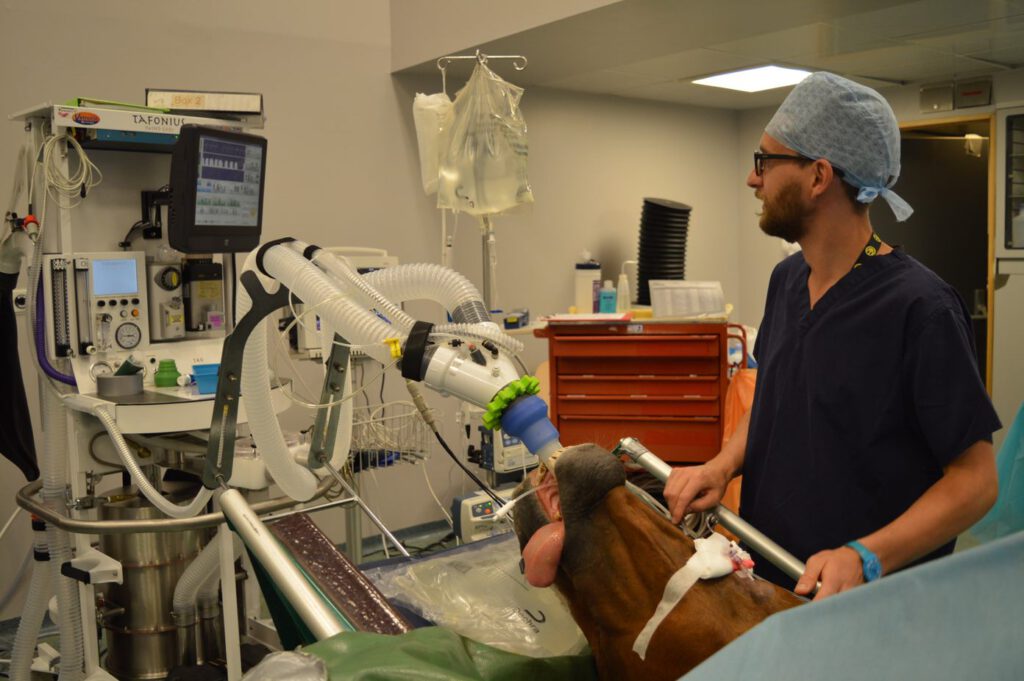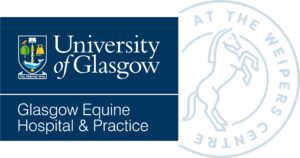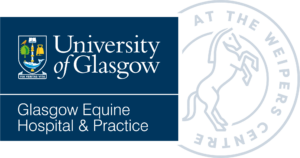Surgery
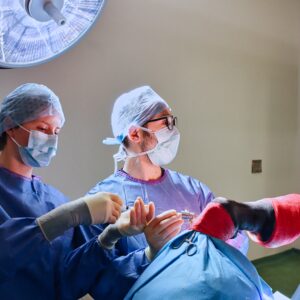
At Glasgow Equine Hospital we carry out a large variety of elective and emergency surgical procedures every year, under general anaesthesia or standing sedation.
For procedures requiring general anaesthesia, we have two state-of-the-art operating theatres and recovery boxes, each equipped with a rope-assisted recovery system and a separate anaesthesia induction room. Examples of surgery we perform routinely under general anaesthetic include:
Orthopaedic Surgery
Arthroscopy
’Keyhole’ surgery for joints and tendon sheaths has dramatically improved the surgical treatment of joint and tendon sheath problems (inserting a camera into a joint or a tendon sheath, respectively), and is amongst the more common procedures performed at the hospital.
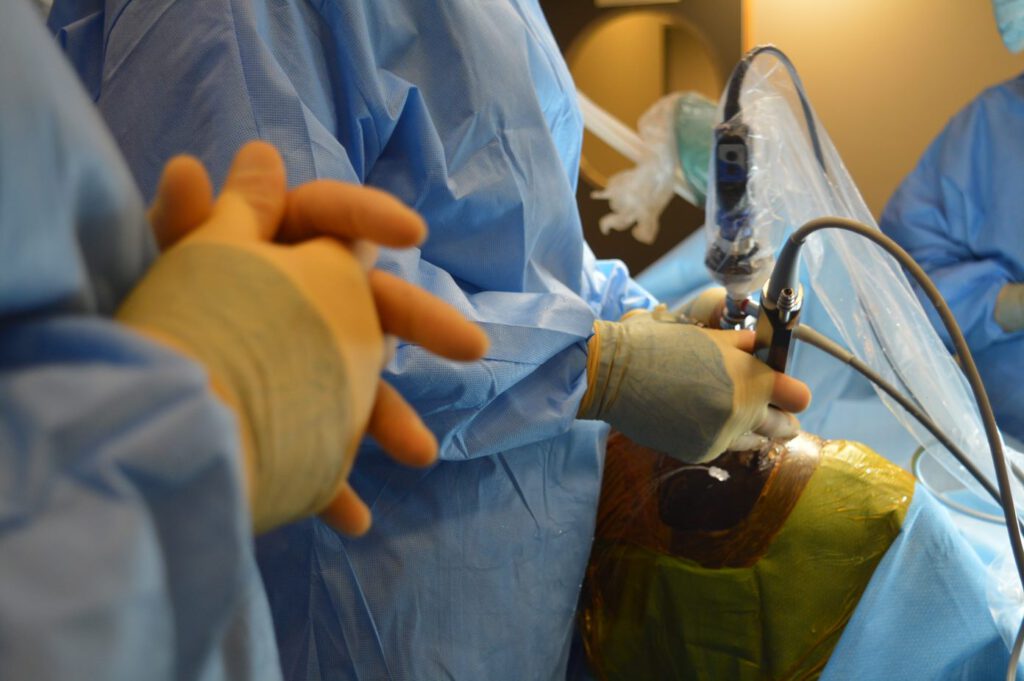
Fracture Repair
Recent innovations in treatment mean that the days of a fracture being untreatable in the horse are gone. Glasgow Equine Hospital’s surgeons have a high level of expertise in fracture repair in horses and a full range of instruments and implants for the repair of fractures is available. Simple fractures may be repaired with one or two screws, while more complicated longbone fractures require plates and screws.
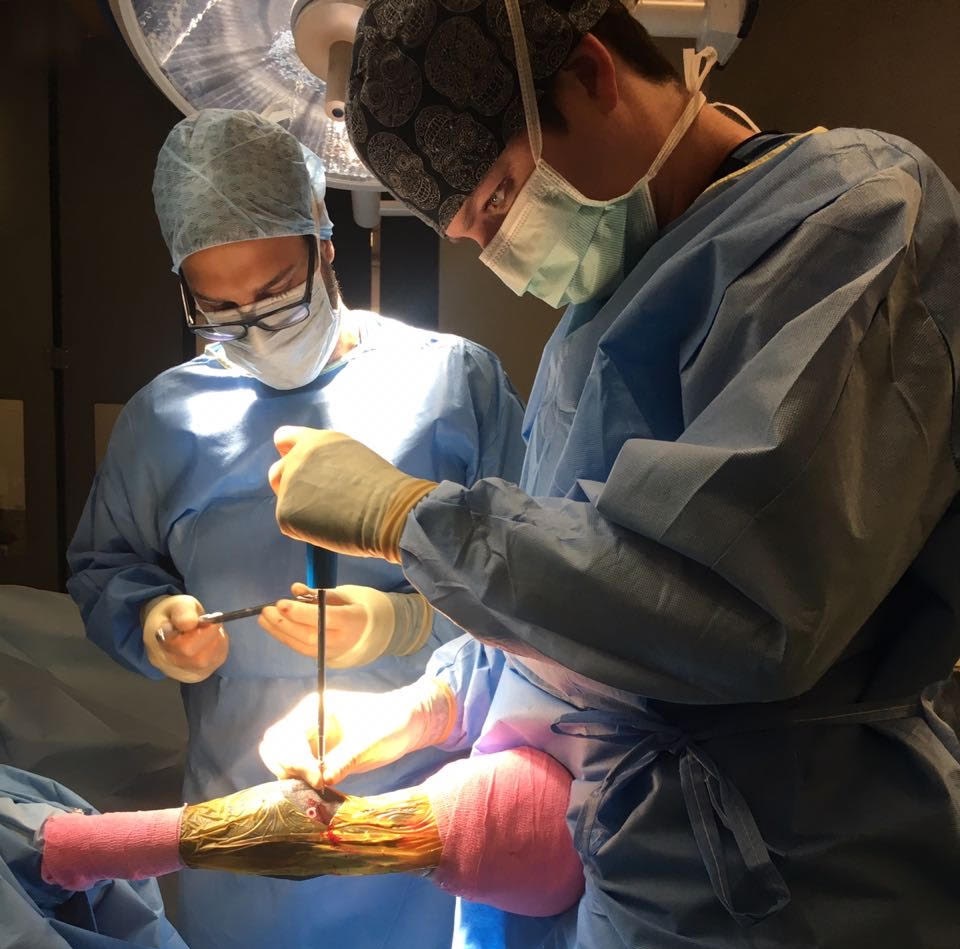
Soft Tissue Surgery
Colic Surgery
Colic is a common condition affecting horses of all ages, breeds and use. Colic is a general term used to describe abdominal pain. Severity ranges from a case of simple discomfort to severe pain and a life threatening problem. Most often colic is associated with conditions of the gastrointestinal tract, however, other causes of abdominal pain that may be confused with gastrointestinal colic are, foaling, tying up, and urinary problems. While most cases can be treated medically, approximately five per cent of colic cases may require surgical correction.
A large number of horses with colic are seen at Glasgow Equine Hospital each year. Many respond successfully to intensive medical treatment but a significant proportion require emergency surgery. Huge improvements in treatment for colic mean that many horses, even those with severe problems, survive following colic surgery and go on to lead a normal life.
For more information about colic, please see our REACT colic champions page.
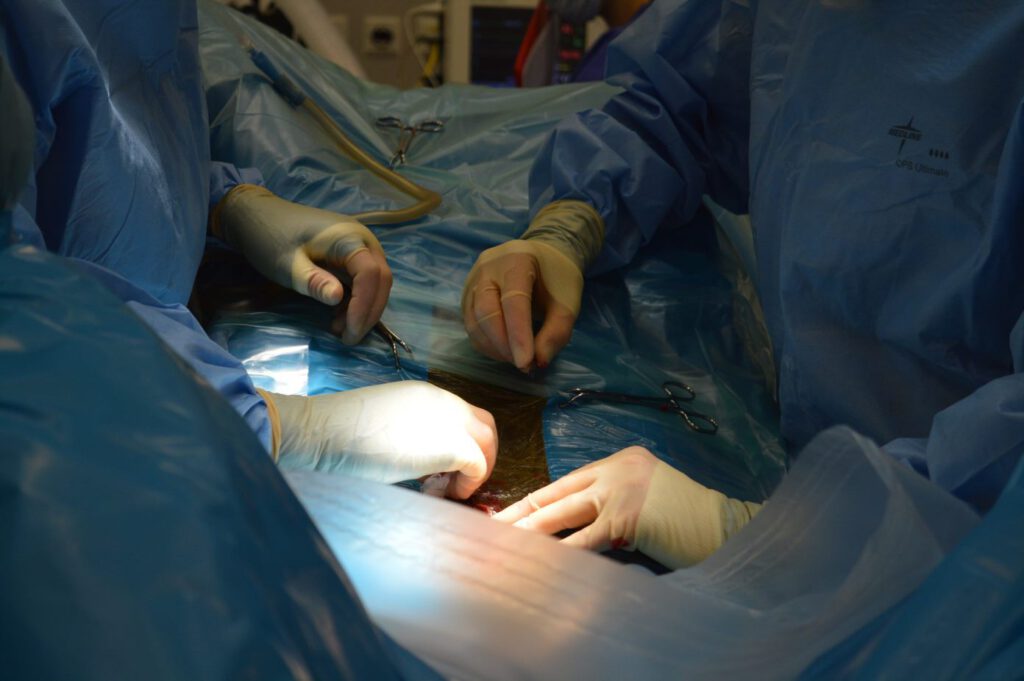
Laparoscopy
Laparoscopic (inserting a camera into the abdomen) investigation of the abdomen can carried out using local anaesthesia and sedation. It is most commonly used for removal of ovarian tumours and retained testicles. However, it can also be useful for investigation of horses which suffer chronic and recurrent bouts of colic, as it allows inspection of a significant part of the abdomen without the need for a midline incision and full ‘colic surgery’ under general anaesthesia.
Restricted in a specially designed stocks, this procedure can be performed on ponies to Clydesdale horses. One of the advantages of laparoscopy compared to traditional, open, surgery is that horses are generally able to return to work much sooner.
Airway Surgery
Horses can experience a variety of upper airway obstructive conditions that are rarely life-threatening but can have a negative impact on athletic performance. Many of these conditions are considered dynamic, where they only become apparent during exercise. Clinicians at Glasgow Equine Hospital can implement a variety of diagnostic tools, including videoendoscopy, overground endoscopy and ultrasonography to evaluate the equine upper airway during rest and exercise. In addition to routine surgeries performed under general anaesthesia, a significant number of upper airway surgeries can be performed standing with trans-endoscopic laser techniques, using sedation and local anaesthesia. For more information, please contact the Glasgow Equine Hospital.
Ocular Surgery
Ocular abnormalities, including trauma to the eye, are not uncommon in horses. Depending on the condition(s) present, your horse may require surgical treatment. A variety of procedures can be performed safely under sedation and local anaesthetic. However, the horse’s eye can be complex, and surgical treatment under general anaesthetic may be required. In cases of major injury where the eye cannot be salvaged, surgical removal is indicated. This is a procedure that can be carried out routinely under sedation and local anaesthetic. The prognosis for full recovery and healing once an eye has been removed is usually excellent, and horses with one eye typically return to almost all forms of activity and use.
Following evaluation by our specialist medicine team at Glasgow Equine Hospital, further surgical treatment can be provided by our surgical team if required.
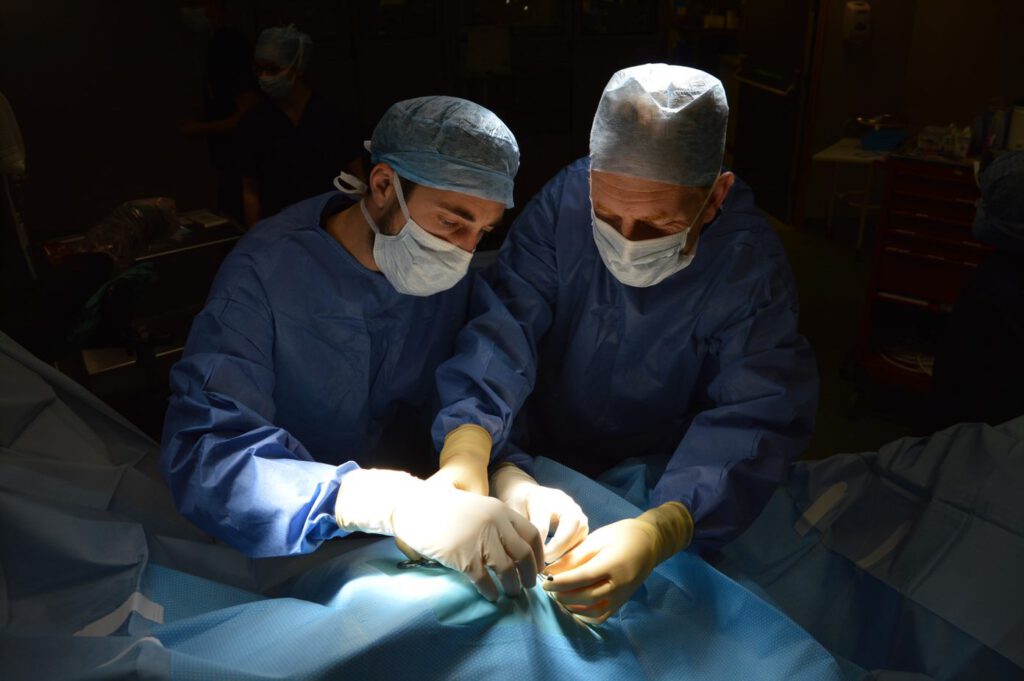
Skin Surgery
Glasgow Equine Hospital routinely provides medical and surgical treatment for various skin conditions, including removal of masses, such as sarcoids and melanomas, and treatment of chronic and non-healing wounds. The majority of treatments can be performed under standing sedation, including removal of cutaneous masses by laser. Depending on the condition present, integrative treatment may be employed, including application of topical creams in combination with cryotherapy (local freezing of tissues). Thorough assessment by our team of specialists at the Glasgow Equine Hospital will help in guiding specific treatment to optimize success.
Urogenital Surgery
At the Glasgow Equine Hospital, specialist surgeons are able to perform a variety of surgical procedures on the male and female urogenital tract including:
Stallions/Geldings
- Castration
- Cryptorchid surgery (removal of retained testicle)
- Amputation of the penis
- Removal of penile or testicular tumours
- Removal of bladder or urethral calculi (stones)
Mares
- Caesarean section
- Caslick’s operation
- Ovariectomy
- Removal of granulosa cell tumours
- Repair of uterine and rectal tears, perineal lacerations and rectovaginal fistulas
- Correction of vaginal urine pooling
- Removal of bladder calculi (stones)
Anaesthesia
Prior to any routine anaesthetic, horses are carefully examined. After an initial anaesthetic is administered the horses are transferred to the surgery suite. Patients can be then placed on a automatic ventilator and monitored for changes in blood gases, electrocardiogram and blood pressure. A team of dedicated and trained veterinary anaesthetists watch over all our anaesthetics.
Our fully equipped surgical facilities are specially designed to optimise the care of horses requiring surgery. We have two induction/recovery rooms with special padding, soundproofing and soft lighting. We monitor all horses during recovery and have the facilities to assist recovery if necessary.
Any operation is a team effort requiring input from anaesthetists and nursing staff in addition to the surgeons. Complex operations are often challenging for anaesthetists, as well as surgeons, because long periods of anaesthesia may be required. The hospital however, is fortunate as it uses veterinary anaesthetists who have specialised in this discipline.
